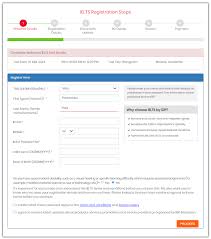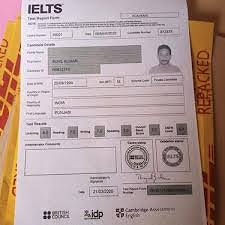Ielts Id, The International English Language Testing System (IELTS) is one of the most recognized and respected English proficiency tests globally. Whether you’re taking the IELTS for study, work, or migration purposes, your IELTS ID is a crucial part of the test process. Here’s everything you need to know about your IELTS ID and its importance.
What is an IELTS ID?
An IELTS ID refers to the identification document you use when registering for and taking the IELTS exam. This ID is used to verify your identity throughout the IELTS process. It’s essential to ensure that the ID you choose matches the information provided during your registration, as any discrepancies can lead to complications or even prevent you from sitting the exam.
Types of Acceptable IELTS IDs
The type of ID required for the IELTS test varies depending on your country of origin and the location where you are taking the exam. Generally, the following IDs are accepted:
- Passport: This is the most widely accepted form of ID for the IELTS. It’s preferred for its universal recognition and security features.
- National Identity Card: In some countries, a national ID card may be acceptable. However, this depends on the test center and country-specific regulations.
- Resident Permit: For individuals living in a country where they are not citizens, a resident permit might be accepted as an IELTS ID.
It’s important to check with your specific IELTS test center to confirm which IDs are acceptable.
Importance of Your IELTS ID
Your IELTS ID is required at multiple stages of the testing process, including:
- Registration: You need to provide your ID details when you register for the IELTS. Ensure that all the information you enter matches your ID exactly to avoid any issues later.
- Test Day: On the day of your exam, you must bring the same ID that you used during registration. This ID will be checked multiple times, including during check-in, before entering the exam room, and possibly during the test itself.
- Results Collection: After completing the IELTS, your ID might be needed to collect your results, whether online or in person.
Common Issues Related to IELTS ID
Failing to bring the correct IELTS ID on the test day is one of the most common issues candidates face. Here are a few tips to avoid problems:
- Double-check your ID: Make sure your ID is valid, not expired, and is the one you used during registration.
- Keep it safe: Your IELTS ID should be kept secure and easily accessible on the test day.
- Contact the test center: If your ID is lost, stolen, or damaged before the test, contact your test center immediately to find out the necessary steps.
Conclusion
Your IELTS ID is more than just a formality; it’s a critical part of ensuring that your test experience goes smoothly. By understanding the importance of your IELTS ID, and making sure you have the correct and valid identification on test day, you can focus on performing your best on the exam itself.
Always check the specific requirements of your test center well in advance of your test date to avoid any last-minute issues. With proper preparation and attention to detail, your IELTS ID can be one less thing to worry about on your path to achieving your goals.



